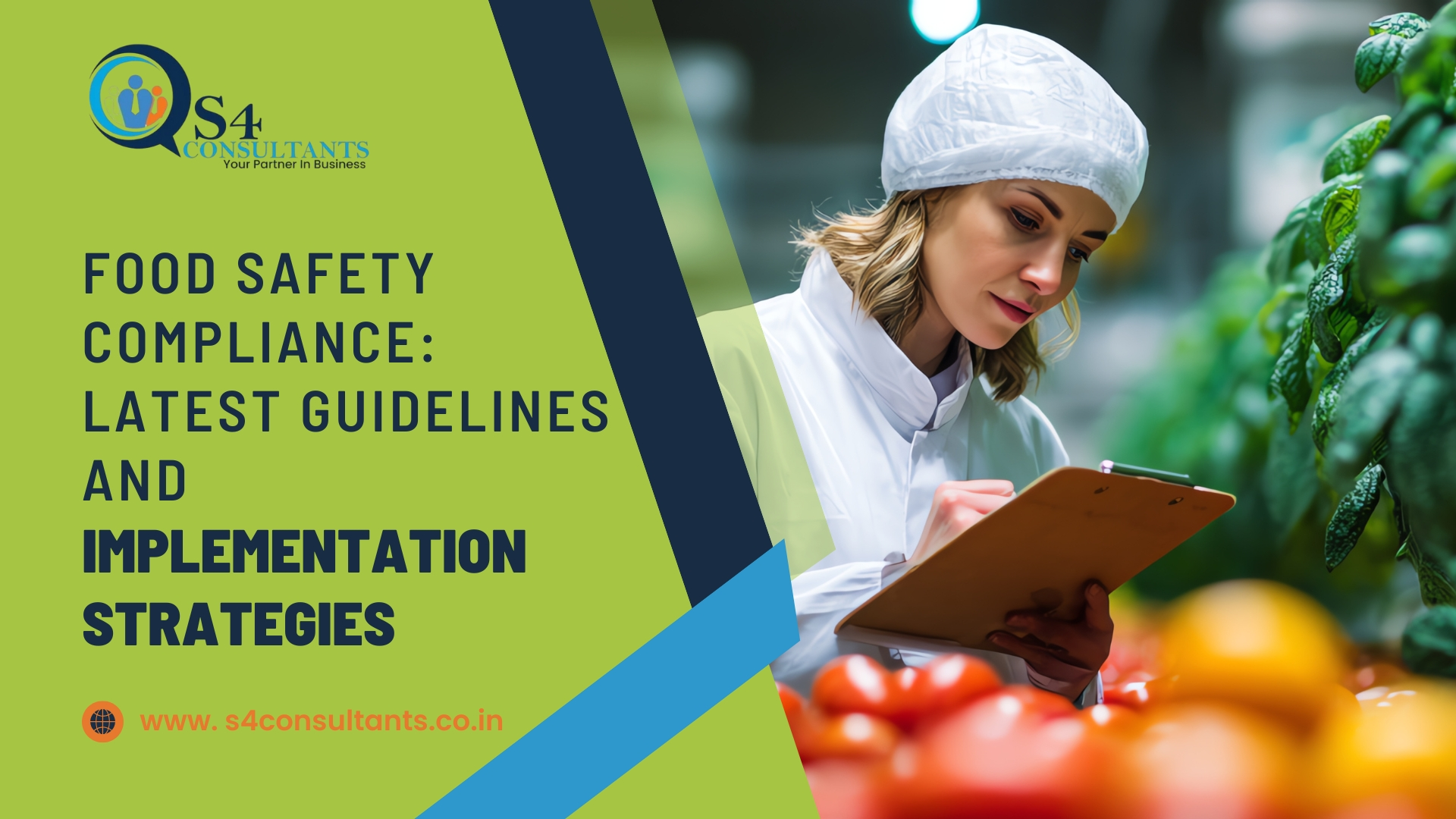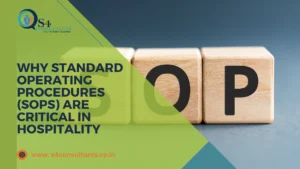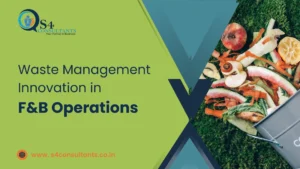Why Standard Operating Procedures (SOPs) Are Critical in Hospitality
September 18, 2025

Food safety is no longer a choice, but rather a requirement for all food businesses. As consumers become increasingly aware and food safety compliance becomes more stringent, companies need to implement the newest food safety standards to avoid non-compliance. The Food Safety and Standards Authority of India (FSSAI) updates its model continuously to promote improved hygiene, storage, and distribution practices within industries.
If you operate a restaurant, hotel, or café, food safety compliance alignment guarantees customer trust and sustainable growth. Collaborating with professional consultants, such as hotel consultants in India or cafe consultants in India, like S4 Consultancy can speed up and enhance compliance.
Food safety failures can injure more than reputation—they yield fines, consumer distrust, and operational inefficiencies. Reasons to focus on Food Safety Standards are:
Today’s consumers increasingly trust companies that follow clear food safety protocols, making compliance an imperative and a competitive benefit.
The FSSAI norms and international food safety regulations require strict compliance. Some of the new requirements are:
Hygiene Standards – Sanitization and preventive maintenance on a regular basis in kitchens
Labelling and Packaging – Transparency of ingredients, allergen alerts, and best-before dates
Storage Compliance – Proper cold-chain and dry storage facilities
Digital Licensing – Online registration and FSSAI license renewals
Employee Training – Empowering staff with safe handling practices knowledge
By complying with such food safety laws, S4 consultancy tries to prevent risks and maintain seamless operations.
Even with stringent regulations, most hospitality establishments find it difficult to comply. The most prevalent are:
Inadequate Staff Training – High turnover rates have a tendency of creating inconsistent knowledge of hygiene protocols.
Lack of Resources – Cafés and restaurants with limited budgets cannot afford upgrades in facilities.
Compliance Gaps in Documentation – There are no proper compliance documents kept for the time of audits.
Risk in the Supply Chain – Inadequate vendor management can result in tainted or out-of-date raw materials.
Operational Pressures – At times, in peak service hours, hygiene procedures are neglected.
Through resolution of these issues with systematic approaches, aided by professional consultants, food companies can achieve uniform food safety compliance with all activities.
To achieve food safety compliance aligned with FSSAI Guidelines with success, companies like S4 Consultancy must follow a structured strategy:
Conduct Compliance Audits – Periodic checks to recognize and correct loopholes
Standardize SOPs – Unambiguous operational procedures for food handling
Upgrade Equipment – Contemporary storing and cooking systems minimize risks
Continuous Training – Equip staff with information on changing practices
Partner with Consultants – S4 Consultant provides customized compliance solutions for hospitality companies
This combination of operational discipline and professional guidance keeps companies compliant without undermining service quality.
Hotels need to deal with issues like buffet waste, mass operations, and several food outlets. They need systems to handle hygiene in kitchens, storage facilities, and guest service areas. Collaboration with India-based specialized hotel consultants like S4 consultancy assists to solve these special needs efficiently.
Cafés usually have to deal with food preparation wastage risks, supply chain shortages, and labeling requirements. Consulting professional cafe consultants in India guarantees compliance without disrupting daily flow of services.
Companies seeking robust compliance can adopt these five steps:
Measure & Monitor – Regularly monitor and track hygiene and food quality parameters
Train & Educate Staff – Create awareness with role-based training and workshops
Engage Customers – Disclose safety procedures transparently to gain trust
Incorporate Modern Technology – Utilize digital tracking and compliance software
Review Progress – Periodic audits and corrective measures
We at S4 Consultancy combine in-depth food safety compliance knowledge with on-the-ground operating knowledge of the hospitality industry. Our services are:
As top hotel consultants in India and cafe consultants in India, we assist your company to remain at the forefront of compliance while improving efficiency and brand image.
Food safety compliance is more than just a checklist these days—it’s a key driver of customer trust, profitability, and brand reputation. With the latest food safety best practice and robust systems, hospitality companies can drive sustainable growth.
S4 Consultant can help you navigate regulations with confidence, look after your customers, and drive your competitive advantage.
1. What is Food Safety Compliance and why is it significant?
It is the compliance with lawful and hygienic food handling, storage, and serving practices to safeguard consumers and promote efficient operation.
2. What are the major food safety laws in India?
The FSSAI guidelines form the basis, such as hygiene, labeling, storage, and staff training requirements.
3. How can hotels gain from professional consultants?
Cooperating with experienced hotel consultants in India guarantees compliance for hotels while enhancing service quality.
4. Do cafés need food safety compliance procedures as well?
Yes, cafés are expected to adhere to the same food safety regulations, emphasizing safe preparation, labeling, and licensing.
5. Why opt for S4 Consultancy compliance solutions?
S4 Consultancy offers customized strategies, compliance training, and professional audits, enabling hospitality companies to attain unbroken compliance.
6. Can S4 Consultancy help with staff training?
Yes. We offer personalized training modules to familiarize employees with new FSSAI regulations.
7. What are the consequences if a company doesn’t adhere to rules of compliance?
Non-compliance may lead to large penalties, suspension of licenses, or closure of the business.

September 18, 2025

September 4, 2025

© Copyright 2026 Consult S4 Consultant, Designed by That Rank thatrank.com

